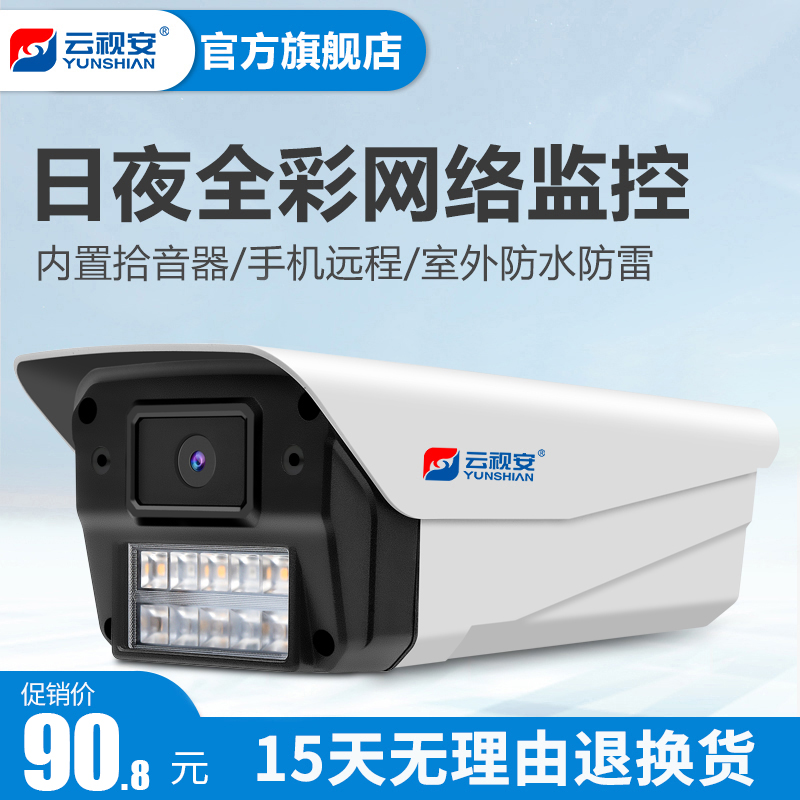现代办公楼安防监控系统设计与实施
甙邵登峰
2024-12-08 02:00:45
0次
现代办公楼安防监控系统设计与实施
一、引言
 二、系统设计
1. 需求分析
首先,我们需要对办公楼的安全需求进行全面分析。这包括但不限于:出入口控制、办公区域监控、重要设施保护、突发事件应对等。此外,还需考虑办公楼的规模、使用人群、安全预算等因素。
2. 系统架构设计
根据需求分析结果,设计合理的安防监控系统架构。该架构应包括摄像头、存储设备、传输设备、控制中心等部分。其中,摄像头应覆盖办公楼的各个重要区域,确保无死角监控;存储设备用于存储监控视频,以便后续回放和分析;传输设备负责将摄像头捕捉的图像传输到控制中心;控制中心负责监控和管理整个系统。
3. 技术选型
根据系统架构设计,选择合适的技术和设备。例如,选择高清摄像头以获取更清晰的图像;选择稳定的传输设备和存储设备以确保监控系统的稳定性和可靠性;选择先进的控制中心软件以实现远程监控和管理等功能。
三、系统实施
1. 硬件安装
根据系统设计,安装摄像头、存储设备、传输设备等硬件设备。在安装过程中,需确保设备的稳定性和可靠性,同时注意设备的防水、防尘等措施。
2. 软件配置
配置控制中心软件,实现远程监控和管理等功能。包括设置用户权限、配置监控画面、设置报警规则等。此外,还需对软件进行定期更新和维护,以确保其稳定性和安全性。
3. 系统调试与测试
在系统安装和配置完成后,进行系统调试和测试。测试内容包括画面质量、传输速度、报警响应时间等。确保系统能够正常运行并满足安全需求。
四、总结
通过以上设计与实施过程,我们成功构建了一个适用于现代办公楼的安防监控系统。该系统能够实现对办公楼内各个区域的实时监控和录像回放,提高了办公楼的安全性。同时,该系统还具有远程监控和管理等功能,方便管理人员对办公楼进行实时管理。
Modern Office Building Security Monitoring System Design and Implementation
Introduction:
With the continuous advancement of technology and rapid social development, the security of modern office buildings has become increasingly important. To ensure the safety of personnel and property within the office building, the design and implementation of a security monitoring system is crucial. This article will provide a detailed introduction to the design and implementation process of a modern office building security monitoring system.
System Design:
1. Need Analysis:
Firstly, we need to conduct a comprehensive analysis of the security needs of the office building, including but not limited to entrance and exit control, office area monitoring, protection of important facilities, response to emergencies, etc. Additionally, factors such as the size of the office building, the user population, and the security budget should be considered.
2. System Architecture Design:
Based on the results of the need analysis, design a reasonable security monitoring system architecture that includes cameras, storage devices, transmission devices, control centers, etc. Cameras should cover all important areas of the office building to ensure no blind spots in monitoring; storage devices are used to store surveillance videos for subsequent playback and analysis; transmission devices are responsible for transmitting the images captured by cameras to the control center; and the control center is responsible for monitoring and managing the entire system.
3. Technology Selection:
Select appropriate technologies and equipment based on the system architecture design. For example, choose high-definition cameras to obtain clearer images; select stable transmission and storage devices to ensure the stability and reliability of the monitoring system; and choose advanced control center software to achieve remote monitoring and management functions.
System Implementation:
1. Hardware Installation:
Install hardware devices such as cameras, storage devices, and transmission devices according to the system design. During installation, ensure the stability and reliability of the equipment while taking into account waterproofing, dust protection, and other measures.
2. Software Configuration:
Configure the control center software to achieve remote monitoring and management functions, including setting user permissions, configuring monitoring screens, setting alarm rules, etc. Additionally, regularly update and maintain the software to ensure its stability and security.
3. System Debugging and Testing:
After completing system installation and configuration, conduct system debugging and testing. The testing includes image quality, transmission speed, alarm response time, etc., to ensure that the system can operate normally and meet security needs.
二、系统设计
1. 需求分析
首先,我们需要对办公楼的安全需求进行全面分析。这包括但不限于:出入口控制、办公区域监控、重要设施保护、突发事件应对等。此外,还需考虑办公楼的规模、使用人群、安全预算等因素。
2. 系统架构设计
根据需求分析结果,设计合理的安防监控系统架构。该架构应包括摄像头、存储设备、传输设备、控制中心等部分。其中,摄像头应覆盖办公楼的各个重要区域,确保无死角监控;存储设备用于存储监控视频,以便后续回放和分析;传输设备负责将摄像头捕捉的图像传输到控制中心;控制中心负责监控和管理整个系统。
3. 技术选型
根据系统架构设计,选择合适的技术和设备。例如,选择高清摄像头以获取更清晰的图像;选择稳定的传输设备和存储设备以确保监控系统的稳定性和可靠性;选择先进的控制中心软件以实现远程监控和管理等功能。
三、系统实施
1. 硬件安装
根据系统设计,安装摄像头、存储设备、传输设备等硬件设备。在安装过程中,需确保设备的稳定性和可靠性,同时注意设备的防水、防尘等措施。
2. 软件配置
配置控制中心软件,实现远程监控和管理等功能。包括设置用户权限、配置监控画面、设置报警规则等。此外,还需对软件进行定期更新和维护,以确保其稳定性和安全性。
3. 系统调试与测试
在系统安装和配置完成后,进行系统调试和测试。测试内容包括画面质量、传输速度、报警响应时间等。确保系统能够正常运行并满足安全需求。
四、总结
通过以上设计与实施过程,我们成功构建了一个适用于现代办公楼的安防监控系统。该系统能够实现对办公楼内各个区域的实时监控和录像回放,提高了办公楼的安全性。同时,该系统还具有远程监控和管理等功能,方便管理人员对办公楼进行实时管理。
Modern Office Building Security Monitoring System Design and Implementation
Introduction:
With the continuous advancement of technology and rapid social development, the security of modern office buildings has become increasingly important. To ensure the safety of personnel and property within the office building, the design and implementation of a security monitoring system is crucial. This article will provide a detailed introduction to the design and implementation process of a modern office building security monitoring system.
System Design:
1. Need Analysis:
Firstly, we need to conduct a comprehensive analysis of the security needs of the office building, including but not limited to entrance and exit control, office area monitoring, protection of important facilities, response to emergencies, etc. Additionally, factors such as the size of the office building, the user population, and the security budget should be considered.
2. System Architecture Design:
Based on the results of the need analysis, design a reasonable security monitoring system architecture that includes cameras, storage devices, transmission devices, control centers, etc. Cameras should cover all important areas of the office building to ensure no blind spots in monitoring; storage devices are used to store surveillance videos for subsequent playback and analysis; transmission devices are responsible for transmitting the images captured by cameras to the control center; and the control center is responsible for monitoring and managing the entire system.
3. Technology Selection:
Select appropriate technologies and equipment based on the system architecture design. For example, choose high-definition cameras to obtain clearer images; select stable transmission and storage devices to ensure the stability and reliability of the monitoring system; and choose advanced control center software to achieve remote monitoring and management functions.
System Implementation:
1. Hardware Installation:
Install hardware devices such as cameras, storage devices, and transmission devices according to the system design. During installation, ensure the stability and reliability of the equipment while taking into account waterproofing, dust protection, and other measures.
2. Software Configuration:
Configure the control center software to achieve remote monitoring and management functions, including setting user permissions, configuring monitoring screens, setting alarm rules, etc. Additionally, regularly update and maintain the software to ensure its stability and security.
3. System Debugging and Testing:
After completing system installation and configuration, conduct system debugging and testing. The testing includes image quality, transmission speed, alarm response time, etc., to ensure that the system can operate normally and meet security needs.
 Conclusion:
Through the above design and implementation process, we have successfully built a security monitoring system suitable for modern office buildings. The system can achieve real-time monitoring and video playback of various areas within
Conclusion:
Through the above design and implementation process, we have successfully built a security monitoring system suitable for modern office buildings. The system can achieve real-time monitoring and video playback of various areas within
随着科技的不断进步和社会的快速发展,现代办公楼的安全问题日益受到关注。为了确保办公楼内人员和财产的安全,安防监控系统的设计与实施显得尤为重要。本文将详细介绍现代办公楼安防监控系统的设计与实施过程。

【家用网络摄像头】TP-LINK200 300万 400无线摄像头全彩室外家用网络安防监控头语音售价:223.00元 领券价:223元 邮费:0.00

【家用网络摄像头】云视安网络高清全彩夜视摄像头室外家用防水手机远程安防监控器售价:186.60元 领券价:186.6元 邮费:0.00
上一篇:打造全方位的办公空间安防监控体系
相关内容
热门资讯
全面理解办公场所安防监控系统的...
本文全面解析了办公场所安防监控系统的部署与操作,包括系统需求分析、硬件设备选择与配置、系统安装与布线...
现代办公设备中的安防监控技术详...
现代办公设备中,安防监控技术如视频监控、入侵检测和人脸识别等,通过实时监测和保护,提高办公环境安全性...
办公设备中的安防利器:监控系统...
办公设备中,监控系统是提高安全与效率的安防利器。它能进行视频、音频监控,及时报警并分析数据,广泛应用...
打造安全办公环境,安防监控系统...
在信息化时代,安全办公环境愈发重要,高效安防监控系统必不可少。本文阐述其重要性及物理、数字和员工行为...
高效办公:智能安防监控设备的应...
本文讨论了智能安防监控设备在高效办公中的应用和选择,涉及视频监控、入侵检测和异常行为识别等技术。选择...
办公空间中不可或缺的监控设备
办公空间监控设备是不可或缺的,包括摄像头、录像机、监控屏幕及软件系统,能确保办公区域安全,提高工作效...
办公楼安防监控系统:保护企业资...
本文介绍了办公楼安防监控系统,旨在保护企业资产和员工安全。该系统通过视频监控、门禁控制等手段,实现全...
智慧办公,安全无虞——探秘现代...
现代安防监控设备具有智能化、高清化、智能分析技术及强大的存储回放功能,保障智慧办公安全无虞,保护企业...
办公区域安全防护:从办公设备监...
办公区域安全防护关键在于设备监控。通过监控办公设备,可提高使用效率、防止滥用和保障企业安全。采取安装...
办公设备中的安防监控:如何选择...
摘要:选择办公设备中的安防监控解决方案需考虑预算、安全性、兼容性、功能性和维护支持等因素。可采取视频...
